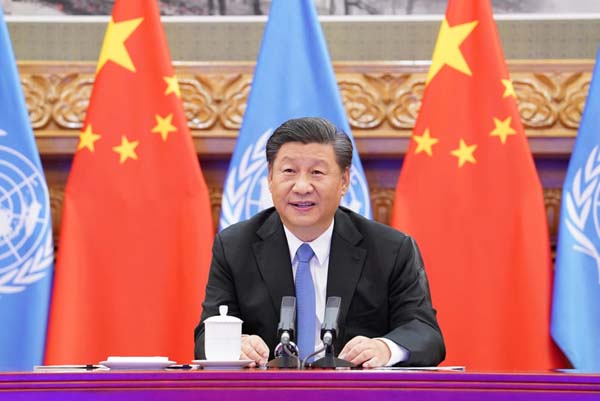
Xi sets course for safeguarding common treasures of humanity
China Economic Net
Beijing: China is willing to work with all countries across the globe and UNESCO to jointly safeguard the cultural and natural treasures of humanity, Chinese President Xi Jinping has said in a congratulatory letter to the 44th session of the World Heritage Committee of UNESCO.
The world’s cultural and natural heritage is an important outcome of the development of human civilization and natural evolution, and an important vehicle for the exchanges and mutual learning between civilizations, Xi told the session, which opened Friday in Fuzhou, capital of east China’s Fujian Province.
“To well protect, inherit and make good use of these precious treasures is our shared responsibility, and is of vital importance to the continuity of human civilization and the sustainable development of the world,” he said in the letter.
Implementing the new development philosophy, China has earnestly adhered to the Convention Concerning the Protection of the World Cultural and Natural Heritage with a sense of responsibility to the history and to the people, and has constantly improved its capability and caliber in heritage protection, he noted.
Xi said China is willing to work with all countries across the globe and UNESCO to strengthen exchanges and cooperation, promote dialogue and mutual learning, support the cause of world heritage protection, jointly safeguard the cultural and natural treasures of humanity, and promote the building of a community with a shared future for humanity.
“We see China as a major actor in the international scene to help countries and sites in need,” said Mechtild Rossler, director of the UNESCO World Heritage Center, noting that many of the UNESCO World Heritage Sites are in imminent danger, while some other uninscribed ones remain underrepresented.
For these sites, “we need to do capacity building, we need to enhance protection globally, and I think China can play its role” in this regard, Rossler said.
Xi’s letter illustrates that China attaches great importance to world cultural and natural heritage protection, said Lyazid Benhami, vice president of the Paris Association of French-Chinese Friendship.
China’s endeavor to protect and restore the heritage provides other countries with positive experiences, Benhami added.
China has helped Nepal to restore the nine-storey Basantapur temple complex in the Kathmandu Durbar Square, a UNESCO World Heritage Site that was badly damaged in an earthquake in 2015, making valuable contributions to the rescue and protection of the world heritage, said Madan Kumar Rimal, head of the Nepalese History, Culture and Archaeology Department at Nepal’s Tribhuvan University.
Long Ponnasirivath, secretary of state and spokesman of the Cambodian Ministry of Culture and Fine Arts, said China has taken strong measures to protect the world heritage, gaining recognition internationally, and Cambodia wishes to draw more experience from China in this field.
